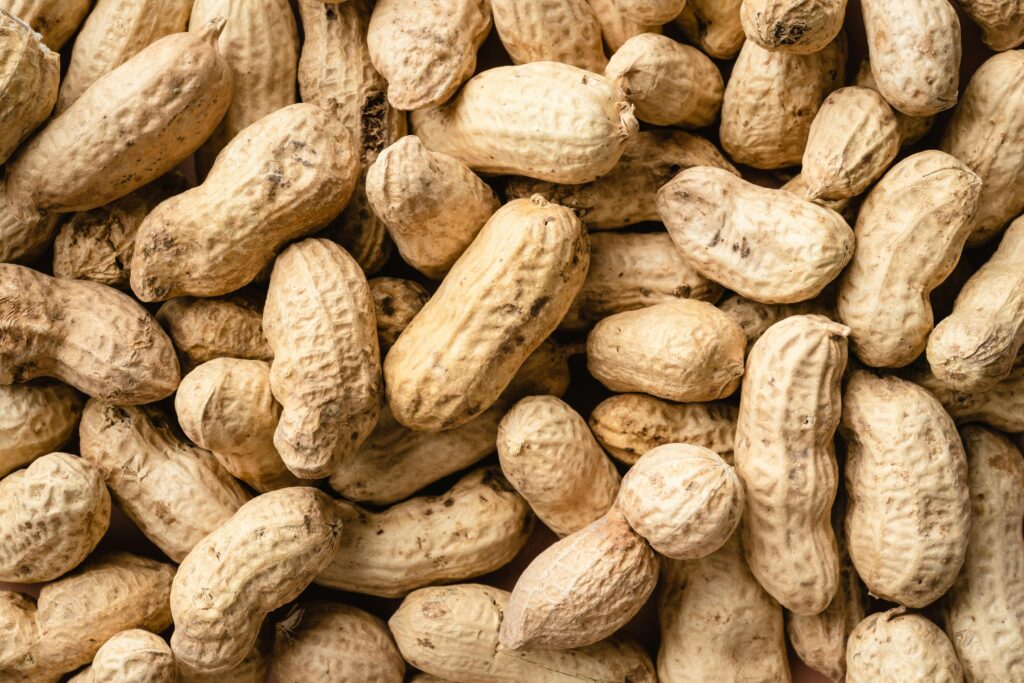The Benefits of Peanuts.

Peanuts, also known as groundnuts, have a fascinating history that dates back thousands of years. They are native to South America, specifically the region that is now Bolivia and Peru. Evidence of peanut cultivation has been found in ancient Peruvian tombs dating back over 3,500 years. Peanuts are a nutritious food that can offer several health benefits. Here’s how they can positively impact your health:
1. Rich in Nutrients
- Proteins: Peanuts are an excellent source of plant-based protein, essential for muscle repair and growth.
- Vitamins and Minerals: They are rich in B vitamins, especially niacin and folate, as well as minerals like magnesium, phosphorus, and potassium.
- Healthy Fats: Peanuts contain mostly unsaturated fats, which are heart-healthy and can help reduce bad cholesterol levels.
2. Heart Health
- Lowers Cholesterol: The monounsaturated and polyunsaturated fats in peanuts help lower LDL (bad) cholesterol levels, reducing the risk of heart disease.
- Anti-inflammatory Properties: Peanuts contain antioxidants like resveratrol, which have anti-inflammatory effects and may protect the heart.
3. Weight Management
- Satiety: Peanuts are high in protein and fiber, which can help you feel full longer and reduce overall calorie intake, aiding in weight management.
- Thermogenic Effect: Peanuts require more energy to digest, which can slightly boost metabolism.
4. Blood Sugar Control
- Low Glycemic Index: Peanuts have a low glycemic index, meaning they do not cause rapid spikes in blood sugar levels, making them a good choice for people with diabetes.
- Improves Insulin Sensitivity: Regular consumption of peanuts may improve insulin sensitivity, reducing the risk of type 2 diabetes.
5. Brain Health
- Rich in Niacin: Peanuts are a good source of niacin (vitamin B3), which supports brain health and may protect against cognitive decline.
- Antioxidants: The antioxidants in peanuts, such as resveratrol and vitamin E, can protect brain cells from damage.
6. Bone Health
- Magnesium and Phosphorus: These minerals in peanuts are essential for maintaining strong bones and preventing osteoporosis.
7. Anti-Cancer Properties
- Antioxidants and Polyphenols: Peanuts contain compounds like resveratrol and p-coumaric acid that have been shown to have anti-cancer properties by protecting cells from oxidative damage.
8. Digestive Health
- Fiber Content: Peanuts are a good source of dietary fiber, which supports digestive health by promoting regular bowel movements and preventing constipation.
9. Skin Health
- Vitamin E: This antioxidant in peanuts helps protect the skin from damage caused by free radicals, contributing to healthier skin.
10. Mental Health
- Mood Regulation: The magnesium in peanuts is involved in neurotransmitter regulation, which can improve mood and reduce symptoms of depression and anxiety.
Which is Healthier?
Roasted Peanuts: If you prefer the taste of roasted peanuts, choose dry-roasted, unsalted varieties. They still offer plenty of health benefits and might be more enjoyable, which can help you stick to healthier eating habits.
Raw Peanuts: If you’re looking for the most natural, nutrient-dense option, raw peanuts are slightly healthier, particularly if you’re mindful of additives and want to avoid potential nutrient loss.
While peanuts offer numerous health benefits, they should be consumed in moderation, especially for those with peanut allergies.





